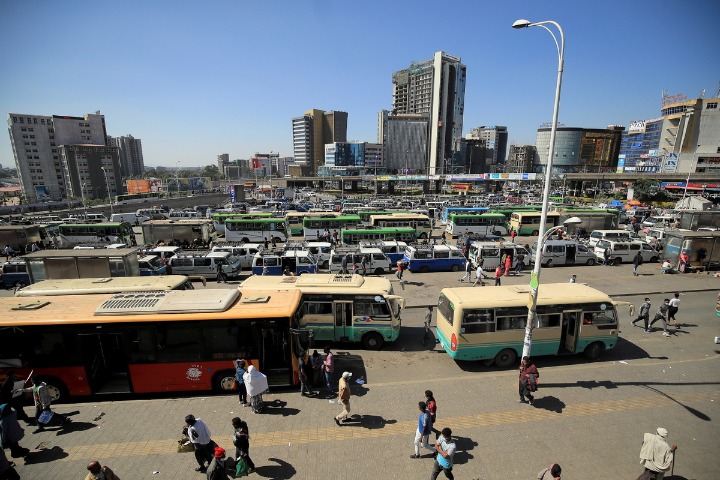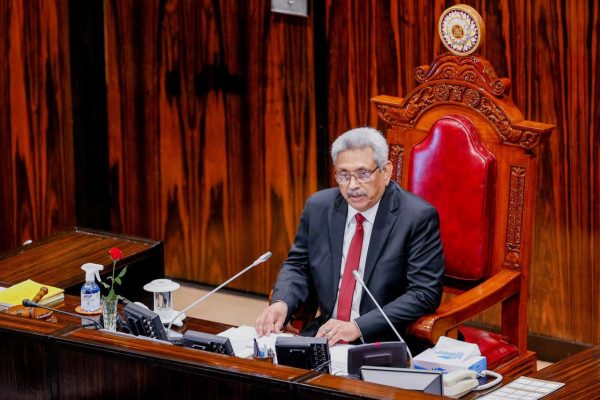Sri Lankan economy faces growing debt crisis, urgent reforms needed: IMF

Sri Lanka’s economy was facing “increasing challenges” with public debt reaching “unsustainable levels”, the IMF said, calling for urgent reforms to the island nation’s economy as it faces the worst economic crisis.
Sri Lanka is currently reeling from a severe foreign exchange crisis with declining reserves and the government unable to pay the bill for essential imports.
Sri Lanka has been hit hard by COVID-19. On the eve of the pandemic, the country was highly vulnerable to external shocks due to inadequate external reserves and high risks to public debt sustainability, exacerbated by the 2019 Easter Sunday terrorist attacks and major political changes, including significant tax cuts at the end of 2019,” the International Monetary Fund (IMF) said in a statement after the global lender’s February 25 consultative meeting of the board.
Despite the ongoing economic recovery, directors noted that the country faces growing challenges, including public debt that has reached unsustainable levels, low international reserves and still-large financing needs in the coming years, according to the press release.
The IMF has also called for urgent reforms in the island’s economy.
Directors stressed the need for ambitious fiscal consolidation based on high-quality revenue measures. Noting Sri Lanka’s low tax-to-GDP ratio, they saw scope for raising income tax and VAT rates and minimizing exemptions, complemented by tax administration reform.
The gloomy picture of the local economy has emerged at a time when the government is under increased pressure to seek an IMF bailout as the island’s foreign exchange reserves have hit critical levels.
The government has firmly refused to resort to the IMF, even in the context of the current energy and electricity crisis and the shortages of almost all basic necessities and medicines.
Electricity generation has been hit by the currency crisis as fuel to run thermal power plants is scarce. Electricity regulators have warned of five to six hours a day of rolling blackouts over the next few days.
Instead of the IMF, the government turned to seeking economic packages from India which materialized in mid-January, offering a temporary reprieve.
Another $1 billion facility from India is currently expected to meet urgent import needs for essential commodities.
In January, India announced a $900 million loan to Sri Lanka to replenish its depleted foreign exchange reserves and to import food, amid shortages of nearly all essential commodities in the country.
Last month, a deal was also sealed to provide Sri Lanka with a $500 million line of credit for the purchase of fuel, which was part of the immediate economic relief package.
(Only the title and image of this report may have been edited by Business Standard staff; the rest of the content is auto-generated from a syndicated feed.)
Dear reader,
Business Standard has always endeavored to provide up-to-date information and commentary on developments that matter to you and that have wider political and economic implications for the country and the world. Your constant encouragement and feedback on how to improve our offering has only strengthened our resolve and commitment to these ideals. Even in these challenging times stemming from Covid-19, we remain committed to keeping you informed and updated with credible news, authoritative opinions and incisive commentary on relevant topical issues.
However, we have a request.
As we battle the economic impact of the pandemic, we need your support even more so that we can continue to bring you more great content. Our subscription model has received an encouraging response from many of you who have subscribed to our online content. More subscriptions to our online content can only help us achieve the goals of bringing you even better and more relevant content. We believe in free, fair and credible journalism. Your support through more subscriptions can help us practice the journalism we are committed to.
Support quality journalism and subscribe to Business Standard.
digital editor





![[Press release] Debt crisis: a failed G20 summit](https://www.cadtm.org/local/cache-vignettes/L710xH373/f0bd231bf33e0619051e008da75a42-274d7.jpg)
